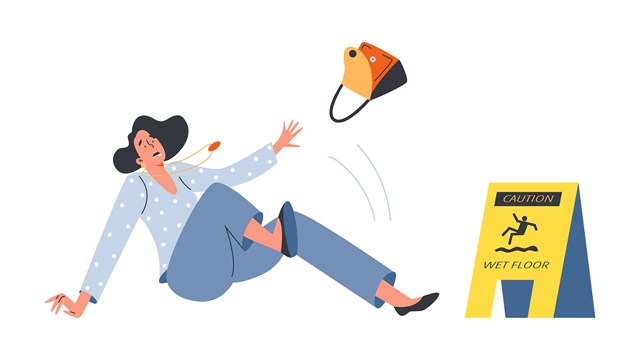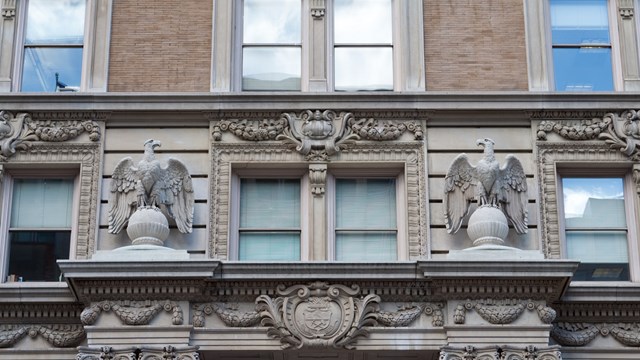The increase in the number of co-ops and condos in New York City has changed the way many New Yorkers live. Renters who have purchased a co-op apartment have become owners of stock while condo owners posses a block and lot. The traditional landlord-tenant relationship enjoyed by these former renters has been replaced by other relationships that are quite different and sometimes confusing. In co-ops, the tenants are owners of their own landlords; while, in condos, the tenants are landowners of their individual units and they acquire an undivided interest in the common elements of the condo.
These new relationships are sometimes at odds with health and safety laws that were originally aimed at correcting imbalancesperceived or realin the normal landlord-tenant relationship. As a result, shareholders and boards of directors of co-ops as well as unit owners and boards of managers of condos will often hear the question: Whose responsibility is this, anyway? especially when maintenance or repair issues come up.
General Obligation Rules
The mutual obligations between shareholders and the co-op are governed by the co-op's proprietary lease, house rules and by-laws. Under most proprietary leases, the co-op is responsible for structural repairs to the building and repairs to the common elements of the co-opall parts of the building that are not inside the individual shareholders' apartmentsand repairs to the interior of shareholders' apartments, if the damage has been caused by the co-op's negligence. If the co-op makes repairs for which the shareholder is responsible, the co-op is entitled, under most proprietary leases, to charge the shareholder for the cost of those repairs.
In condos, the repair obligations are set forth in the governing documents such as the declaration establishing the condo, the by-laws of the condo and the individual unit deed. Under the Multiple Dwelling Law (within New York City) and the Multiple Residence Law (outside New York City), each unit owner is deemed to be the person in control of his or her apartment, while the condo's board of managers is deemed to be the person in control of the common elements of the condo for purposes of enforcing those laws or codes.
In condos, unit owners are responsible for complying with regulations regarding window guards, smoke detectors, asbestos removal and lead paint abatement inside the unit, while the board of managers is responsible for repairs and other health and safety laws in the common elements. Windows, however, are generally considered part of the common elements; and, therefore, are the responsibility of the board of managers.
If there is a question as to who is responsible for the damage inside a condo unitfor example, a water leak that may have been caused by a problem in another unitthe board of managers must investigate. If the damage is found to be the result of a problem in a common element of the condo, then the board of managers must make the repairs; otherwise, the unit owner is responsible.
The Co-op as Landlord
Where health and safety matters are concerned, there are exceptions to the general rules regarding repair obligations in co-ops. Under the New York City Housing Maintenance Code, a landlorda term that some courts have held includes co-opsis primarily responsible for making all repairs in, and to, housing accommodations that are part of a multiple dwelling with three or more housing units. This statute even obligates landlords to make repairs in cases where the tenant has caused the damage, although the landlord is entitled to sue the tenant to be reimbursed for the cost of repairs caused by a tenant's wrongdoing.
Almost all residential co-ops in New York City are multiple dwellings. Some courts have forced co-ops under the Housing Maintenance Code to make health and safety-related repairs in apartments even though, under most proprietary leases, the repairs in question are the shareholder's responsibility. Fortunately, in most of these cases the courts have also upheld the co-op's right to charge back to shareholders the cost of those repairs.
Areas that should be of concern to co-ops as part of the primary responsibility as landlord include window guards, smoke detectors, asbestos, lead paint and repairs to building exteriors including facades. It's the responsibility of the owner, lessee, agent or other person who manages or controls a multiple dwelling to provide, install and maintain window guards in every window of every apartment and public hallway in co-op buildings where a child under the age of ten resides, except when the window leads to a fire escape.
If a shareholder fails, or refuses, to notify the co-op of the presence of a child under the age of tenor removes the window guards after they have been installedthe co-op must take steps to ensure compliance. Under these circumstances, I believe that a co-op would be within its rights to invoke the emergency access provision under the proprietary lease to enter the apartment of a non-complying shareholder to install window guards.
Smoke detectors are also the responsibility of landlords to install and to maintain, although in a co-op the cost of repair or replacement should be passed along to the shareholder who removes the smoke detector, fails to replace the battery or damages the detector. If there are children under the age of seven living in an apartment and there is lead paint present, the co-op must take immediate corrective measures. The landlord is strictly liable if corrective measures are not taken.
Surveys and Inspections
To deal with window guards, smoke detectors and lead paint, co-ops should send shareholders an annual survey requesting the ages of children residing in each apartment, whether or not there are window guards and smoke detectors and the date that the batteries were last replaced, and whether there is any cracked or peeling paint or plaster that could be a sign of other problems in the building. These surveys should then be followed up with a physical inspection of each apartment to ensure accurate responses and compliance with the applicable laws and regulations.
These tasks can be delegated to the managing agent, who is usually better equipped to handle the logistics of getting out all the surveys; but, ultimately, the risk of non-compliance may fall on the co-op and individual board members, if someone gets injured or dies because the co-op failed to take simple preventive measures. If the co-op does delegate these tasks, the co-op must follow up with the managing agent and make sure that the surveys are completed and any corrective work gets done.
Condos should consider adopting a similar survey plan even though the individual unit owners are responsible for the conditions inside their units for a number of reasons. Lead paint or asbestos could affect other areas of the condo through water leaks or improper removal. In addition, the statutes, rules and regulations could change or a court could ignore prior court decisions and apply the Housing Maintenance Code (or other statutes) to condos. In addition, by surveying unit owners annually, the board of managers may be able to eliminate potential problems while they are still minor and before they become a big headache.
The co-op or condo building's common elements, including its exterior facade, the elevator and steam, waste and water pipes, should be inspected regularly. Periodic inspection and maintenance of the building's facade is mandated in New York City by Local Law 11. The Housing Maintenance Code and the Multiple Dwelling Law also require landlords to keep buildings and their fixtures in good repair. Elevators are another area that can create problems for co-ops and condos. Even though New York City inspects elevators on a semi-regular basis, co-ops and condos should have their managing agents and elevator maintenance contractors inspect and test the elevators at least annually and make repairs as needed.
The failure to inspect or to make needed repairs or other maintenance could result in civil liability for a co-op and increased maintenance charges to shareholders for emergency repairs when preventive maintenance is usually cheaper, safer and smarter. In a condo, failure to take action can result in increased common charges to the unit owners for emergency repairs. Both co-op and condo boards can potentially face criminal charges and fines, especially where elevators are concerned.
Boards should meet with their managing agents, and other members of their professional team including their attorneys and engineers, to review compliance with applicable laws and regulations before problems occur. Clearly, an ounce of prevention is worth a pound of cure.
Richard T. Walsh is a real estate attorney based in New York.










43 Comments
Leave a Comment